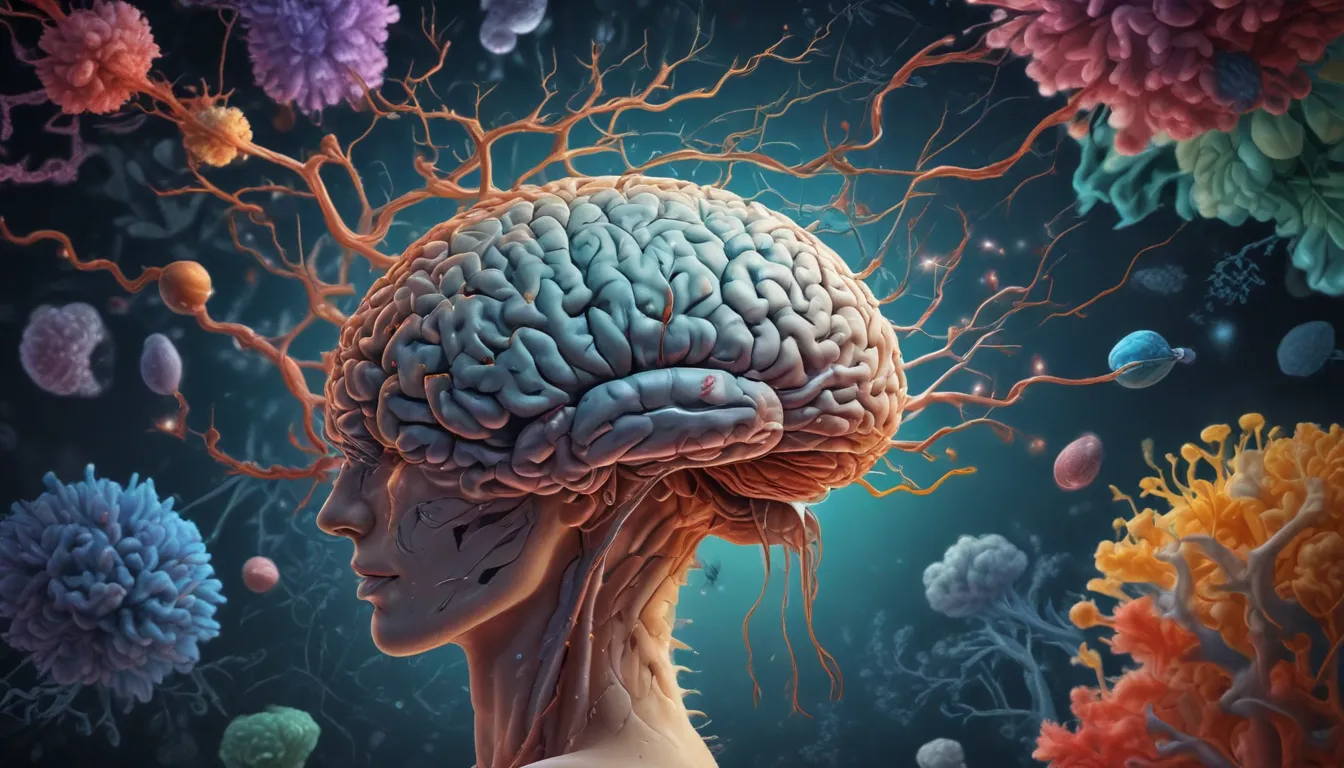A Note About Images: The images used in our articles are for illustration purposes only and may not exactly match the content. They are meant to engage readers, but the text should be relied upon for accurate information.
Welcome to the world of neuropharmacology, where the intricate dance between drugs and the nervous system reveals profound insights into the human brain. This captivating field merges biology and pharmacology to illuminate the complex interactions that shape our mental health and well-being. Join us as we unravel eight surprising facts that highlight the significance of neuropharmacology and its potential to revolutionize the treatment of neurological disorders.
The Intriguing Study of Neuropharmacology
Neuropharmacology is a specialized branch of pharmacology that focuses on understanding how drugs influence the nervous system. By exploring the intricate network of cells, neurotransmitters, and receptors in the brain, neuropharmacologists gain valuable insights into the mechanisms of drug action and their impact on behavior and brain function. This field plays a crucial role in developing treatments for various neurological disorders and exploring the therapeutic potential of natural substances.
The Serendipitous Discovery of Penicillin
The groundbreaking discovery of penicillin by Alexander Fleming in 1928 not only revolutionized the field of antibiotics but also paved the way for advancements in neuropharmacology. Penicillin’s ability to target and eliminate bacterial infections inspired the development of drugs that target specific neurological conditions, opening up new avenues for research and innovation in the field.
Decoding Drug Mechanisms in Neuropharmacology
Neuropharmacologists delve deep into the mechanisms of drug action, seeking to uncover how drugs interact with the nervous system at a molecular level. This knowledge is essential for developing new drugs with enhanced efficacy and fewer side effects, ultimately leading to better treatment options for individuals with neurological disorders.
Harnessing Neuropharmacology for Mental Health
The field of neuropharmacology has played a vital role in the treatment of mental health disorders, such as depression, anxiety, and schizophrenia. By developing medications that target neurotransmitter imbalances in the brain, neuropharmacologists have significantly improved the lives of individuals struggling with these conditions, offering hope and relief through innovative pharmaceutical treatments.
Exploring the Therapeutic Potential of Natural Substances
In addition to pharmaceutical drugs, researchers in neuropharmacology are investigating the therapeutic properties of natural substances, including plants, herbs, and fungi. Compounds like cannabinoids found in cannabis hold promise for managing pain, seizures, and other neurological disorders, offering alternative treatment options for individuals seeking natural remedies.
Advancing Personalized Medicine Through Neuropharmacology
One of the most exciting developments in neuropharmacology is its contribution to personalized medicine. By understanding how genetic variations impact drug responses, researchers can tailor medication regimens to an individual’s unique genetic makeup, enhancing treatment outcomes and minimizing adverse reactions. This personalized approach holds great promise for improving the effectiveness of treatments for neurological disorders.
Uncovering the Potential of Neuroprotective Agents
Neuropharmacologists are exploring the potential of neuroprotective agents, which are substances that can protect the nervous system from damage. By studying these agents, researchers are developing treatments for conditions like Alzheimer’s disease, Parkinson’s disease, and stroke, offering new hope for individuals affected by these neurodegenerative disorders.
Combatting Substance Abuse Through Neuropharmacology
Understanding the neurochemical processes involved in addiction is a critical focus of neuropharmacology research. By investigating how drugs affect the brain’s reward system, researchers are working to develop interventions for substance abuse disorders, offering support and treatment for individuals struggling with addiction.
In conclusion, neuropharmacology is a captivating field that sheds light on the complex interplay between drugs and the nervous system, offering new insights into the treatment of neurological and psychiatric disorders. By staying informed about the latest discoveries in neuropharmacology, we can contribute to the advancement of this field and potentially make groundbreaking contributions to the understanding and treatment of neurological disorders.
FAQs: Your Guide to Neuropharmacology
-
What is neuropharmacology?
Neuropharmacology is the study of how drugs interact with the nervous system, focusing on how they affect the structure and function of neurons, neurotransmitters, and other components of the nervous system. -
What are neurotransmitters?
Neurotransmitters are chemical messengers in the brain that facilitate communication between neurons, playing a vital role in regulating mood, behavior, and overall brain function. -
How do drugs affect neurotransmitters?
Drugs can impact neurotransmitters by either enhancing or inhibiting their activity, leading to changes in brain function, mood, and behavior. -
What are some common uses of neuropharmacology?
Neuropharmacology is utilized in developing medications for neurological and psychiatric disorders, studying the effects of drugs on the brain, and understanding the mechanisms of drug addiction. -
How does neuropharmacology contribute to the treatment of neurological disorders?
Neuropharmacological research helps identify potential drug targets and develop medications that can alleviate symptoms and improve the quality of life for individuals with neurological disorders.
Neuropharmacology is a field ripe with endless possibilities, offering hope and healing for those grappling with neurological disorders. Let’s embark on a journey of discovery together, as we unravel the mysteries of the brain and pave the way for a brighter future through the wonders of neuropharmacology.






